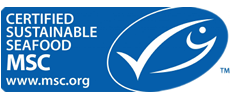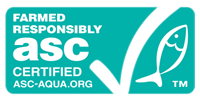SUPPORT
Chilled is better than frozen is no longer true with the advancement of technology. Nowadays lots of fish are frozen on the boat, just within minutes of being caught. These boats have advance flash freezing units that freeze the fish immediately and maintain temperatures far below the typical home freezer. The advancement of flash freezing technology has allowed the fishermen travel further and ensure the fish is top quality when returning to dock.
Just think tuna at Tsukiji market in Tokyo Japan where large whole tunas are auction off in their frozen state. This freezing technique is widely adopted and necessary to ensure the quality of fish. Without flash freezing the tuna can not fetch premium prices and reach the consumers plate in top condition.
Since more than 85 percent of the seafood we eat is imported in Hong Kong, most of the fish is frozen before it makes it to our local fish market or grocery store. Some fish that are labelled “chilled/fresh” are in fact previously frozen.
Not all frozen methods are the same. While rows of fish placed in styrofoam package and placed in a freezer looks appealing it is definitely not the best way to freeze. The superior method of flash freezing glazes a layer of ice over the fish to protect it.
Vacuum seal packaging can also be used with flash freezing to further extend the shelf life of the fish.
There are many good reason to buy frozen fish including taste, convenience and price. Fish frozen at its peak state ensure better freshness, flavour, nutrition and texture than chilled counterparts.
Freezing also extends the shelf life of the fish, this allows fish caught in the summer to be delicious treat in the middle of winter.
All seafood that have international sustainable certificates/labels will be mentioned in their product descriptions. The two common labels you will see are MSC and ASC labels.

The MSC Fisheries Standard is designed to assess if a fishery is well-managed and sustainable. It has been developed in consultation with the fishing industry, scientists and conservation groups. Certification to the MSC Fisheries Standard is voluntary. It is open to all fisheries involved in the wild-capture of marine or freshwater organisms. This includes most types of fish and shellfish, of any size, type or location.

ASC aquaculture standards set strict requirements for responsible farming that encourage seafood producers to minimise the key environmental and social impacts of aquaculture.